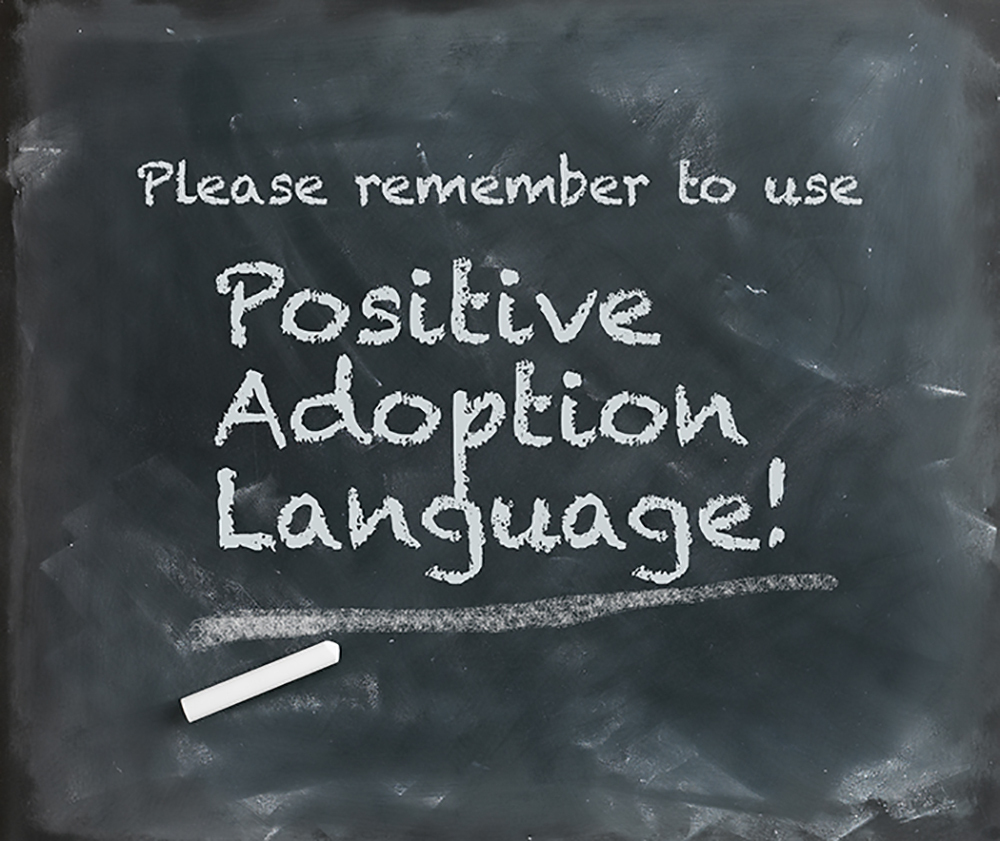
Whether “Open” or not, adoption joins adoptees, adoptive parents and birth parents in a life-long relationship. As surely as our children are grafted to our family tree, they are also the fruit of their biological family tree. Our kids carry the DNA of their ancestry. When we treat their birth families and heritage with respect, we teach children to respect and value an integral part of themselves.
Commit to being a family with a high “AQ” (Adoption-attunement Quotient). Part of having a High AQ, is understanding the need for Positive Adoption Language. The concept of Positive Adoption Language has existed for decades. As our sensibilities and awareness have evolved, the preferred language has changes as well. It is simple to determine which words to use. When speaking about adoption or any member of the adoption triad, base your choice on respect. With this primary filter in place, your selection will work.
Commit to being an advocate for PAL. Take the opportunity to educate others when they use inappropriate language. Once people acquire adoption-sensitive words and appreciate their role, they will use the vocabulary you have shared with them.
As Maya Angelou once famously said, “As we know better, we do better.” When you take the time to advocate for Positive Adoption Language, your actions ripple and spread an attitude of Adoption-attunement sensitivity that benefits every adoptive family.
Remember that children watch what parents/adults do and say. When you advocate for Positive Adoption Language, you model important lessons. You affirm your children’s right to expect respect. You teach them how to hold adoption–related boundaries. You model how to use teachable moments effectively, to enroll others in understanding adoption. (Keep anger and frustration at bay. Approach people with an attitude that assumes they were not intentionally being offensive, unkind, or inconsiderate. This will make them more inclined to listen and care about your message. The way you handle such situations becomes your child’s template for the future.)
Occasionally, you may not want to explain/educate a person who is using awkward or offensive adoption language. (There are times and reasons that support this decision.) Be certain you discuss this choice with your children later. Explain why you avoided the difficult conversation. Otherwise kids may assume that you agree with the negative language or they may feel that you did not stand up for them.
Examples of Positive Adoption Language
| Positive—Please use | Negative—Please Avoid |
| Birth child | Real child |
| Birth Parent or First Parent | Real Parent |
| Planned an adoption | Gave away, relinquished, gave up |
| Adoption triad | Adoption triangle |
| Was adopted | Is adopted |
| Traditional, confidential adoption | Closed adoption |